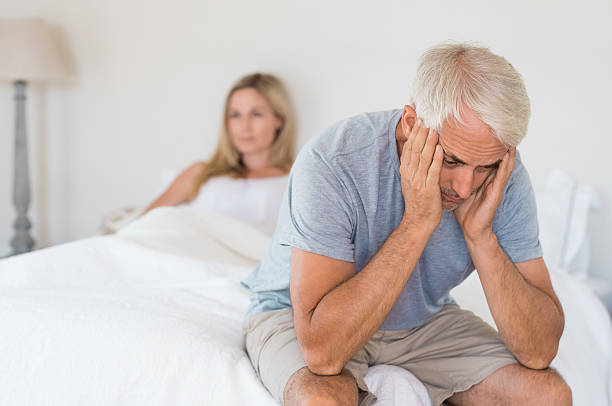
A total of 19.0% of 609 men who completed a survey in Japan and had persistent COVID symptoms reported erectile dysfunction (ED) 1 and/or 2 years post-infection, perhaps due to depression, anxiety, and/or sleep disturbances, suggest researchers with the COVID-19 Recovery Study II Group.
The group conducted a case-control study based on a survey fielded 1 and 2 years post-infection about ED and underlying factors among 609 men aged 20 years and older admitted to 1 of 20 hospitals for COVID-19 from March to September 2021, a period spanning the Alpha and Delta variants. The median participant age was 56 years.
"In COVID-19 patients, vascular endothelial damage due to inflammatory cytokines and hypoxia in the acute phase of COVID-19 lead to the progression of ED," the investigators wrote. "Furthermore, ED is affected by physical stress and psychological stress."
The findings were published in Scientific Reports.
Depression, anxiety, problems sleeping
In total, 116 men (19.0%) reported having ED, including 86 in the 1-year survey, 70 in the 2-year survey, and 40 in both. These participants had higher rates of shortness of breath and fatigue than those without ED and scored higher on the Hospital Anxiety and Depression Scale-D (depression) and the EuroQol 5-dimensions for pain/discomfort and anxiety/depression than before infection.
Anxiety, depression, and sleep disturbances after the post-acute phase of COVID-19 infection suggest that supportive care for the symptoms and quality of life is expected for ED as Long-COVID.
Seventy-nine (68.1%) men said they developed ED within 28 days of COVID-19 infection, and 6 (4.3%) did so 2 to 5 months following infection. Of the 116 men with ED, 29 (25.0%) experienced ED improvement during the study.
Improvement in ED symptoms was noted within 1 month (15 men), 2 months (1), 4 months (1), and 1 year (12). Fifty-seven patients (49.1%) still had ED at 2 years. An exploratory clustering analysis suggested that ED was related to disturbed sleep, while COVID-19 severity, reinfection, vaccination frequency, and antiviral treatment were unrelated.
"Anxiety, depression, and sleep disturbances after the post-acute phase of COVID-19 infection suggest that supportive care for the symptoms and quality of life is expected for ED as Long-COVID," the study authors wrote.
.jpg)











